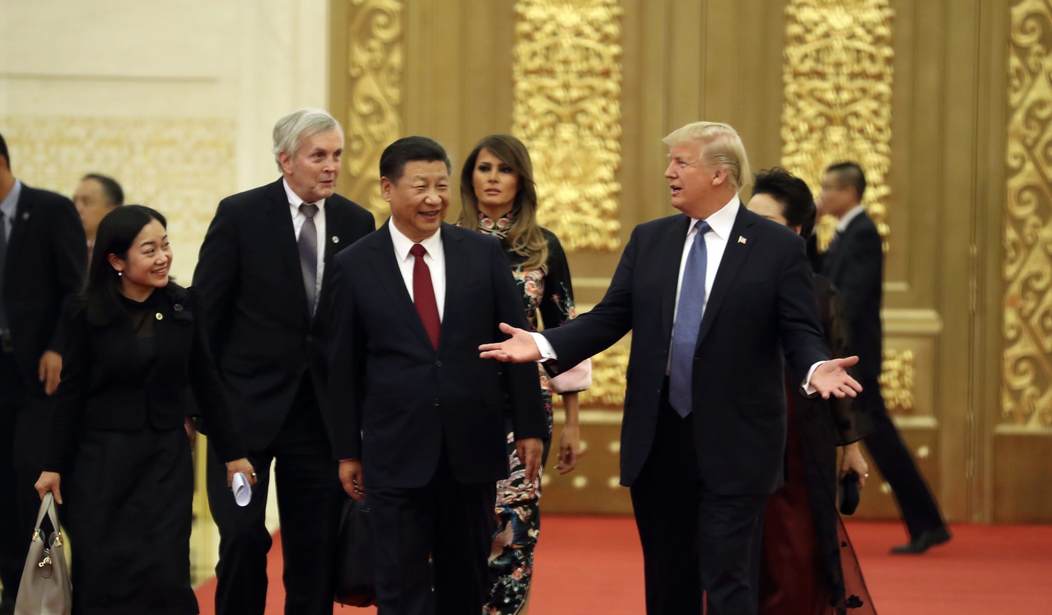WASHINGTON — The Commerce Department today announced a deal to pull a Chinese telecom giant deemed a national security risk out from under the weight of sanctions, prompting bipartisan action on the Hill to block the favor to ZTE.
Last month, Trump vowed to help Chinese telecom giant ZTE, which has been the subject of equipment bans for suspected espionage as well as a violator of Iran and North Korea sanctions, get back on its feet.
Top officials from the CIA, NSA, FBI and the Defense Intelligence Agency testified at a Senate Intelligence Committee hearing in February that smartphones made by Chinese tech companies Huawei or ZTE posed a security risk. The Pentagon recently banned U.S. bases from selling Huawei and ZTE devices in retail stores, as they “may pose an unacceptable risk to the department’s personnel, information and mission.”
In April, Commerce Secretary Wilbur Ross announced that his department’s Bureau of Industry and Security imposed a denial of export privileges against ZTE. The company agreed to a combined civil and criminal penalty and forfeiture of $1.19 billion in March 2017 after illegally shipping telecommunications equipment to Iran and North Korea, making false statements, and obstructing justice. This year, the Commerce Department discovered that ZTE made false statements to BIS during the settlement period and during the 2017 probationary period.
Also, in 2016, ZTE was found to have been one of the manufacturers behind carefully concealed backdoor spyware placed on more than 700 million Android phones.
On May 13, Trump tweeted, “President Xi of China, and I, are working together to give massive Chinese phone company, ZTE, a way to get back into business, fast. Too many jobs in China lost. Commerce Department has been instructed to get it done!”
Today, Ross announced in a Commerce Department statement that ZTE :agreed to severe additional penalties and compliance measures to replace the U.S. Commerce Department’s Bureau of Industry and Security (BIS) denial order imposed as a result of ZTE’s violations of its March 2017 settlement agreement.”
“BIS is imposing the largest penalty it has ever levied and requiring that ZTE adopt unprecedented compliance measures,” Ross said. “We will closely monitor ZTE’s behavior. If they commit any further violations, we would again be able to deny them access to U.S. technology as well as collect the additional $400 million in escrow. The first settlement with ZTE set a record for civil and criminal penalties in an export control case. This new settlement agreement sets another record, and brings the total penalties assessed on ZTE to $2.29 billion.”
The department said that the “purpose of this settlement is to modify ZTE’s behavior while setting a new precedent for monitoring to assure compliance with U.S. law.”
Sens. Marco Rubio (R-Fla.), Tom Cotton (R-Ark.), Chris Van Hollen (D-Md.), and Chuck Schumer (D-N.Y.), along with co-sponsors Richard Blumenthal (D-Conn.), Susan Collins (R-Maine), and Bill Nelson (D-Fla.), fired back today by introducing an amendment to the National Defense Authorization Act that would restore penalties on ZTE for violating export controls.
It would also ban all U.S. government agencies from purchasing or leasing telecommunications equipment or services from Huawei, ZTE, or any subsidiaries or affiliates, and ban the U.S. government from using grants and loans to subsidize Huawei, ZTE, or any subsidiaries or affiliates.
“Huawei and ZTE pose a serious threat to America’s national security. These companies have direct links to the Chinese government and Communist Party. Their products and services are used for espionage and intellectual property theft, and they have been putting the American people and economy at risk without consequence for far too long,” Rubio said in a statement. “On the same day that the administration announced it had reached a ‘deal’ with ZTE, my colleagues advanced this important measure and I encourage Congress to remain clear-eyed and unified on the threat China poses to U.S. interests and national security.”
Cotton noted that “given their repeated violations of U.S. law, we cannot trust them to respect U.S. national security, and so it’s vital we hold them accountable and pass this amendment.”
On the Senate floor, Schumer said ZTE got “essentially a slap on the wrist” and “inexplicably President Trump after talking tough did a total reversal.”
“Once again, it seems President Xi has outfoxed President Trump. There is absolutely no good reason that ZTE should get a second chance, but with this deal, the president has inexplicably thrown them a lifeline. President Xi must be laughing all the way to the Forbidden Palace. He has once again taken advantage of President Trump on an issue vital to our security,” Schumer said. “Many believe ZTE could be a mechanism for spying on our military and lots of different economic parts of the United States. China has shown no reluctance to do that in the past, and we’re just rolling over for no reason and have gotten nothing in return.”









Join the conversation as a VIP Member